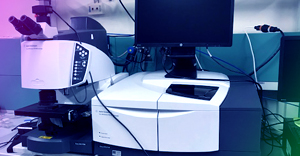
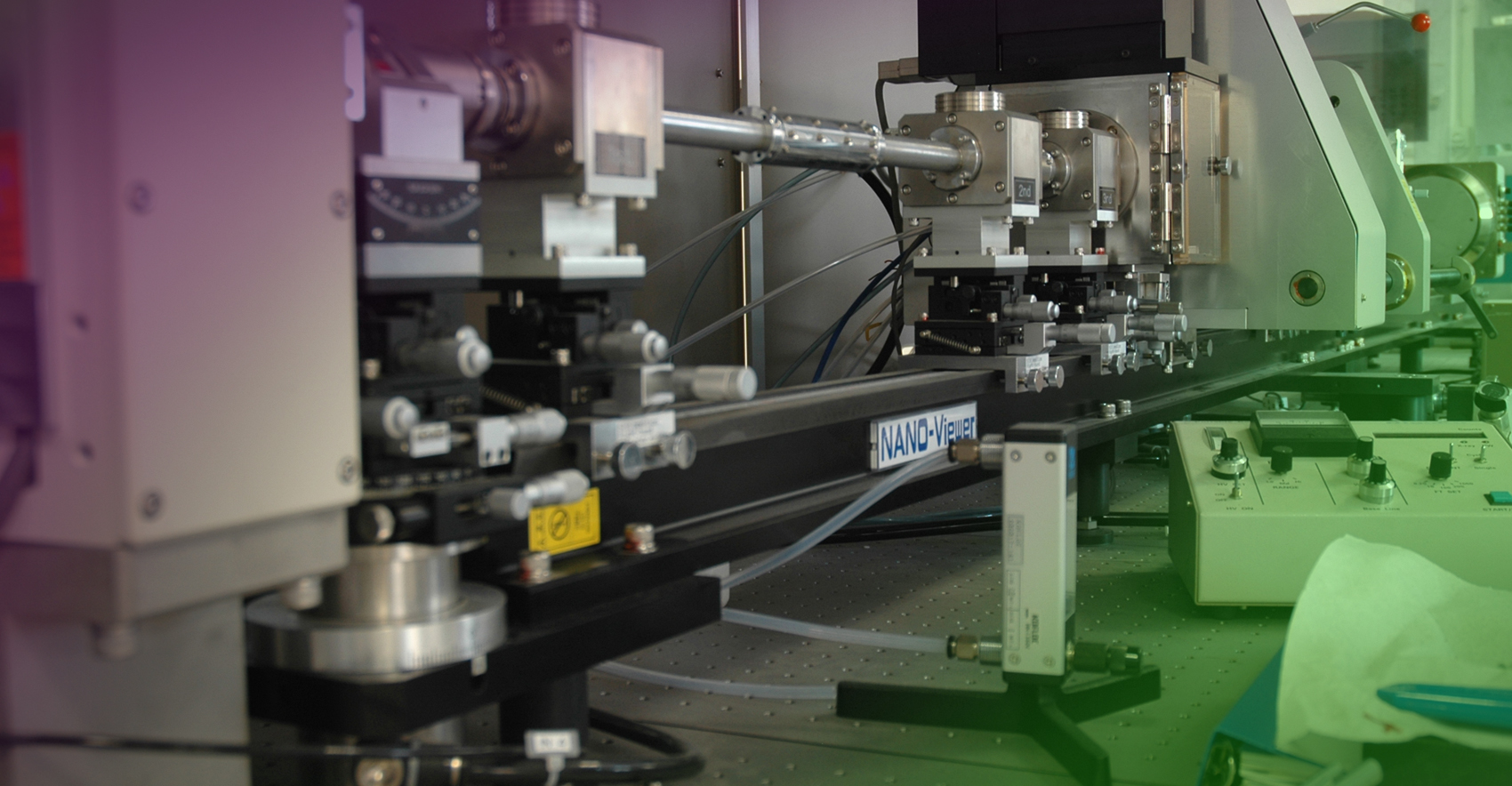
Multimode plate reader equipped with a thermostated chamber for 96-well plates. Allows for automated measurement of UV-Vis absorbance, luminescence, and fluorescence.

Agilent Cary Multicell Peltier spectrophotometer for the study of absorption in the UV-visible region of up to 8 samples simultaneously. The system irradiates and collects the light transmitted by optical fibers and allows the application of rapid and accurate temperature ramps using an air-cooled Peltier unit. The design is particularly useful in the study of formulations and drugs as a function of temperature.
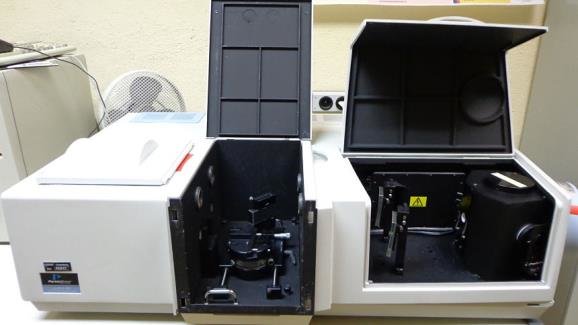
UV/Vis/NIR Spectrophotometer with depolarizer/polarizer accessories for acquisition of standard absorption spectra, kinetic measurements and linear dichroism experiments. The instrument is equipped with a software-driven temperature probe and a fiber-optics accessory for experiments on non-conventional samples (i.e. water-air interface, nanofilms on quartz slides).

The spectrophotometer Shimadzu UV-1601 incorporates all the fundamental performances and functions required in UV-Vis spectrophotometry. With this instrument it is possible to carry out measurement at a fixed wavelength as well as kinetics; Quantitation may be performed by the single-wavelength, 2-wavelength, 3-wavelength, or derivative method. The UV-1601 has high performance sealed optics, housed in an impact-resistant case, so high durability for most solvents.
Features:

Agilent Cary Multicell Peltier spectrophotometer for the study of absorption in the UV-visible region of up to 8 samples simultaneously. The system irradiates and collects the light transmitted by optical fibers and allows the application of rapid and accurate temperature ramps using an air-cooled Peltier unit. The design is particularly useful in the study of formulations and drugs as a function of temperature.
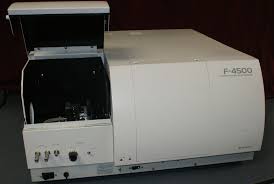
The spectrometer can be used in fluorescence and phosphorescence measurement modes. 3D excitation/emission scans as well as single and multiple wavelength kinetics can be performed. Our instrumentation includes automated accessories to address a wide range of bio and nano-research applications: a set of polarizers allows steady-state fluorescence anisotropy studies whereas the Front Surface accessory is ideal for analyzing films, papers, powders and other flat samples.
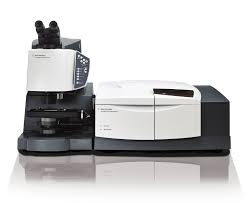
Agilent Cary 670 FTIR and Cary 620 Microscope FTIR Configurable (with GeATR). Equipped with three detectors (FPA 128x128 for imaging, MCT, DTGS), NIR and MIR sources.
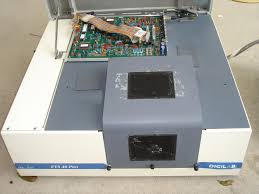
Qualitative and quantitative study of organic and inorganic molecules. The apparatus has DTGS and MCT detectors and the following accessories: Golden Gate Graseby-Specac, DRIFT (Diffuse Reflectance Infared Fourier Transform) Graseby-Specac, ATR (Attenuated Total Reflectance) with Germanium crystal. The instrument is coupled with a BioRad UMA-400 which allows to collect IR spectra in reflectance and trasmittance mode directly on a solid sample on regions from 250x250 µm up to 10x10 m.
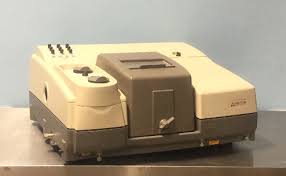
Nicolet Nexus 870 equipped with external optical bench, two external detector modules (MCT and TRS), a Hind photoelastic modulator and a Continuµm IR microscope.

Alpha300 S (WITec) is a microscope combining confocal microscopy, confocal Raman imaging and AFM in a single instrument. A Raman-AFM microscopy mode is available to combine powerful chemical imaging along with high-resolution nanoscale surface characterization of the samples. The imaging technique is non-destructive and suitable for a wide variety of materials. The excitation source for the Raman analysis is a tunable Ar ion laser (454-514 nm) coupled with an optical fiber.

inViaTM QontorTM microscope with 532 and 785 nm excitation, equipped with XYZ motorized stage, flexible arm and Raman imaging techniques. The microscope is equipped with the unique LiveTrackTM technology, which allows the focus of the sample in real time during the observation of the sample and the acquisition of Raman maps. Thanks to this technology, samples with non-uniform, curved or rough surfaces can be studied.
Consorzio interuniversitario per lo sviluppo dei Sistemi a Grande Interfase
Department of Chemistry, University of Florence - Via della Lastruccia 3 50019 - Sesto Fiorentino (FI)
Fiscal code/VAT ID: 04519240487
PEC : consorzio_csgi@pec.it
Filippo Baldereschi
baldereschi@csgi.unifi.it
055-4573035
Emanuela Grassi
emanuela@csgi.unifi.it
055-4573147
Irene Trapani
trapani@csgi.unifi.it
055-4573036
Manola Trastulli
manola@csgi.unifi.it
055-4573034
Michele Baglioni
webmaster@csgi.unifi.it
055-4573026
Giovanna Poggi
webmaster@csgi.unifi.it
055-4573031
Fabio Nicoli (Website designer)
nicolifabio71@gmail.com
